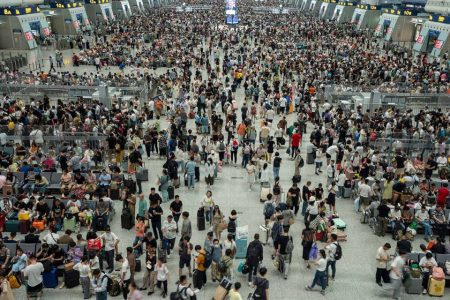Zhuhai’s municipal government announced the establishment of a new AI and robotics-focused company last Wednesday, in what the South China Morning Post described as the city’s entry into a “national race to cultivate the next tech leaders.”
The Zhuhai Technology Industry Group is intended to follow in the footsteps of DeepSeek and Unitree Robotics – major recent success stories in the global tech industry – that are headquartered in Hangzhou, Zhejiang province.
Wednesday also saw new incentives for local tech businesses unveiled, including “computing power vouchers” totalling 500 million yuan (US$69.5 million) that will see eligible companies reimbursed for up to 10 million yuan of their power expenditure.
Additional vouchers worth 100 million yuan will subsidise the use of large language models used in advanced AI chatbots. These would allow companies to claim 30 percent of related costs, with a cap of 1 million yuan per year, the Post reported.
[See more: AI will make us ‘rediscover what it means to be human’, expert promises]
Zhuhai officials also declared that two new incubators for tech start-ups would be built: the Zhuhai Intelligent Robot Key Component Innovation Centre and the Zhuhai AI and Robotics Industrial Alliance.
The announcements are part of Guangdong Province’s bid to position itself as China’s leading hub for AI and robotics. Similarly, Shenzhen recently unveiled two major investment funds to support start-ups in robotics and smart devices, and launched the Shenzhen AI Glasses Industry Alliance.
Back in February, President Xi Jinping held a rare symposium with high-profile entrepreneurs in the tech industry, including representatives from DeepSeek and Unitree. The meeting signalled Beijing’s friendlier stance towards the private sector – particularly in light of competition with the US in areas like AI – and was understood as a sign that financing was about to get easier.
A month later, Guangdong’s provincial government established a special team to support AI and robotics development in industrial settings, according to Chen Lei, deputy head of Guangdong’s Department of Industry and Information Technology.






